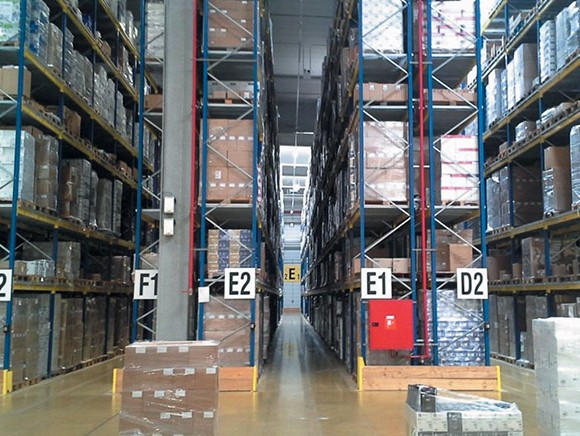
“The food industry is placing ever-greater demands on the cold chain,” says Aloys Putmans, CEO/Director of Nekovri, “but the cold storage sector is working hard to demonstrate its added value in chilled and frozen food.” He talks about scaling up, customisation, flexibility and positioning yourself as a knowledge partner.
“The image of frozen food seems to be improving,” notes Aloys Putmans from the Association of Dutch Cold Storage and Freezing Warehouses (Nekovri). “Consumers can find a growing range of fresh single-serving meals on supermarket shelves. So in the food sector there’s increasing demand for customisation.” How is the cold storage sector responding to this?
“In the future, cold storage companies will have to create a more prominent position for themselves in relation to important topics such as quality, safety and sustainability,” predicts Aloys. “In addition to the substantial progress that has been made in terms of energy efficiency, another key trend is scaling up. Cost-price leadership and strategic international leadership seem to be the decisive factors. At the same time, the food industry is demanding more customisation, and the bigger cold storage companies seem to be the ones responding most successfully. As a result of collaborative partnerships and digitisation, they’ve become much more agile over recent years. If they are offered an extra consignment unexpectedly, collaborating cold stores can quickly find out where chilled or frozen storage space is still available. This chain efficiency clearly adds value for customers.”
As a result of a wide range of societal developments, including changing consumer behaviour, technological advancements and changes in (finely meshed) logistics networks, it is increasingly necessary for cold storage companies to position themselves as knowledge partners for their clients, in both the fresh-chilled and the frozen segments. Those are the findings from a study commissioned by Dutch industry association Nekovri in conjunction with Netherlands Enterprise Agency (RVO). ‘That development must not be limited to the cold storage company itself, but will also increasingly have to take place within the product chain(s),’ concluded the two organisations in a well-written report that was published following the study. ‘In view of the varying characteristics, applications and logistics activities associated with the products, it will be essential to have valid knowledge of quality and safety in relation to cold storage in order for companies to secure customer loyalty within an increasingly closed chain,’ states the report.
“That customer loyalty is achieved by offering customisation. Cold storage companies have a lot of knowledge; in effect, they are all niches,” says Aloys. “By collaborating and bundling all the niches together they are also better able to cope during the less-busy periods of the year. In the past, a ULO storage cell used to be filled with apples which were gradually removed, in phases, over the course of the year. At a certain point the cold store was empty but the next harvest was not yet ready. Now that smaller cold storage companies are forming groups, it’s easier to utilise capacity that would have previously remained empty for other products. That also helps to decrease the level of food waste and reduce food losses, which is a major problem worldwide. In the past, tons of apples and tomatoes used to be destroyed, but now we can store food products and monitor their quality much more effectively. There’s actually enough food to feed the world; the only problem is the logistics.”

“There has been a huge wave of specialisation among cold storage companies in recent years. A lot of research has been conducted into how all kinds of products can be refrigerated or frozen optimally. In the case of apples, it’s a matter of precision to tenths of a degree and of highly specific air composition. In the case of meat, the speed at which it’s frozen has a considerable impact on the ultimate quality of the product, In fact, each product has its own specific requirements. Research by Wageningen UR reveals that in fruit and vegetables, for example, temperature control and a closed cold chain are the most important methods for safeguarding quality, followed by humidity control. By combining product knowledge with refined techniques, and by supporting this with the opportunities presented by digitisation, we can monitor the entire process much more effectively than, say, three years ago.”
Keen to read more? Click here to download the report called ‘Op het kruispunt van ervaring en ambities’ – (Praktijk)onderzoek naar ontwikkelingen en trends in de koel- en vriessector in relatie tot leiderschap, energie-efficiency, duurzaamheid en de rol van de overheid’ (At the crossroads of experience and ambitions – (Practical) study into developments and trends in the chilled and frozen sector in relation to leadership, energy efficiency, sustainability and the role of the government [in Dutch only]).
Source: © Vakblad Voedingsindustrie 2016